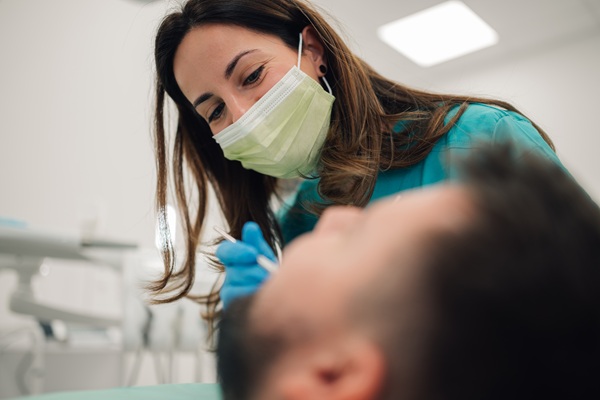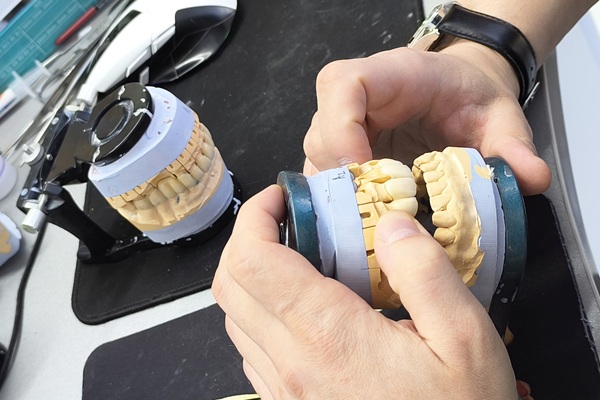4 Preventive General Dentistry Treatments

General dentistry focuses on diagnosing, managing and treating dental and oral health problems. Additionally, general dentists administer routine care so that patients can maintain good oral health. Routine care does include preventive treatments, which can help patients avoid cavities, infections or injuries.
Preventive general dentistry treatments can be very beneficial long-term. They allow patients of all ages to maintain healthy teeth and avoid potential problems. Being aware of the different options can be helpful to patients considering the different preventive treatments currently available.
4 Preventive treatments in general dentistry
The following general dentistry treatments are great options for preventing things like cavities. Keep reading to find out more.
1. Dental bonding
One of the most common preventive general dentistry treatments is dental bonding. General dentists recommend dental bonding for patients of all ages, including children. Bonding coats the teeth and helps protect against cracks, chips and even cavities.
During a dental bonding appointment, the general dentist will paint a dental solution over the enamel of each tooth. The solution will be cured using a special light and it will harden on the surface. Bonding is permanent and can provide long-term preventive measures.
2. Dental deep cleanings
Undergoing regular dental deep cleanings is a great way to prevent infection or cavities. General dentistry offices can provide regular deep cleanings to patients of all ages. Most dentists recommend that these cleanings be done at least twice a year, however, in some situations, patients are able to have them done on a more frequent basis.
Dental deep cleanings are typically done by a hygienist. If there is a severe build-up of plaque or tartar, the patient may be referred to an endodontist.
3. Dental fillings
A common general dentistry treatment that falls under the preventive category is a dental filling. Dental fillings are actually done to repair a damaged tooth. However, they can prevent further damage from occurring. Often times, fillings are used when the tooth only has a minor cavity. Once placed, it can prevent long-term damage from occurring.
Dental fillings can be made of metal alloys or ceramic materials, depending on the patient's desire and the general dentist's recommendation. Both material options provide the necessary measures to prevent decay or damage.
4. Fluoride treatment
One of the more common general dentistry preventive treatments is fluoride administration. Fluoride is a dental agent that strengthens the enamel. General dentists recommend that patients undergo fluoride treatment at least twice a year to ensure that the teeth remain healthy and strong.
Fluoride treatments in a general dentistry office are relatively easy. The patient will wear a gel-based tray for a few minutes or have a solution painted onto the enamel.
The bottom line
General dentistry allows patients to undergo preventive treatments to help protect against decay and infections. Any questions or concerns about preventive treatment options should be addressed by a general dentistry office. Reach out to our office today to get started.
Request an appointment here: https://www.tucsonazdentistry.com or call Advanced Family Dentistry at (520) 353-3002 for an appointment in our Tucson office.
Check out what others are saying about our services on Yelp: Read our Yelp reviews.
Recent Posts
Minimally invasive dentistry is a great way to conserve the structural integrity of your teeth by preventing tooth decay and treating concerns in a minimally invasive manner. Anyone who is concerned that dental work is too invasive, expensive or requires long recovery times should consider how minimally invasive dentistry can benefit them. By learning more about…
A well-chosen dental office can be your trusted partner in supporting lifelong oral health and a positive experience for every member of the family. Selecting a dental office that meets both your clinical and personal needs helps build long-term trust and confidence. When families feel comfortable and understood by a dental team, it makes it…
A general dentist can help you to get past any toothache. Toothaches tend to occur as the worst possible times and they are usually an indicator there is something wrong with that specific tooth.Toothaches are often the result of a tooth being damaged by decay or trauma. It can also be a symptom of an…
The general dentist often uses a dental filling as a restoration procedure for teeth damaged due to decay. Unless the tooth is severely damaged and needs a root canal and a crown, only the tooth filling will be enough. It is better to visit the dentist regularly for checkups, so decay not get too severe.The…


